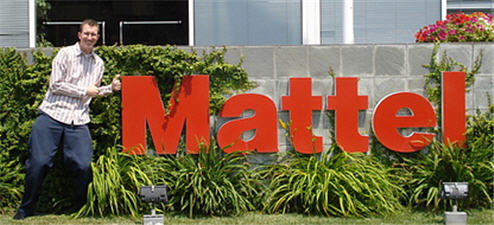Researchers at the Yale School of Medicine have linked [BPA] to problems with brain function and mood disorders in monkeys—the first time the chemical has been connected to health problems in primates.
manufacturing

Confirmed: BPA Will Harm Your Monkey

../../../..//2008/01/25/the-boston-globe-profiles-the/
The Boston Globe profiles the last remaining shoe and boot maker in New England, Alden Shoes. The company’s classic footwear has been worn by the likes of John F. Kennedy, Richard M. Nixon, Dwight D. Eisenhower, Indiana Jones… and the Massachusetts state troopers. The shoes will set you back about $350-$500 a pair, but they seem like awfully nice people. “Our shoes don’t wear out,” says Robert Clark, Alden’s vice president. [Boston Globe]

Poison: The High Cost Of Cheap Batteries
Cadmium batteries are cheap and safe to use, but hazardous to manufacture. They’ll save you money—about $1.50 for the average cadmium-powered toy, says the Wall Street Journal.
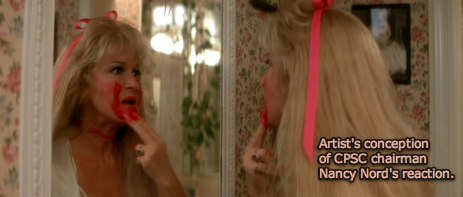
House Votes 407-0 To Ban Lead In Toys And Increase CPSC's Funding
Today the House of Representatives unanimously approved H.R. 4040, the Consumer Product Safety Commission Modernization Act of 2007, that virtually eliminates lead from children’s toys (down to 100 parts per million by 2012) and increases the funding of the CPSC. A Senate committee approved its own version of an anti-lead/pro-CPSC bill in October, but it hasn’t reached a floor vote yet—so sometime (early?) next year a final bill should be hammered out to send to the White House. Unless, of course, the lead toy furor disappears after Christmas.
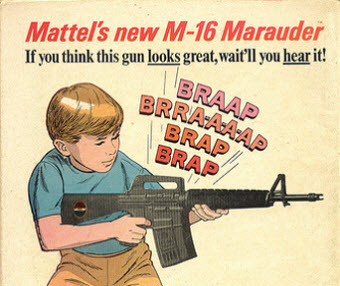
Congresswoman Calls For Mattel To Resume Manufacturing In The US
Mattel used to manufacture toys in the U.S., specifically in Western New York, where it still has offices. Now Rep. Louise Slaughter is calling for Mattel to repair its reputation by opening a plant in her district.
Slaughter, D-Fairport, made the suggestion to Robert A. Eckert, chairman and chief executive officer of Mattel — Fisher-Price’s parent company — in a Nov. 12 phone call.
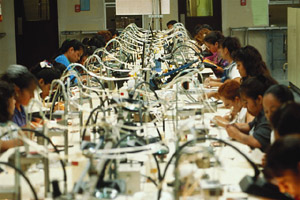
How Often Do Companies Check On Overseas Manufacturers?
With the Gap embarrassed this week by reports that Indian children as young as 10 were making Gap Kids clothing, a lot of people are asking, just how frequently and to what degree do large U.S. companies like Gap and Wal-Mart monitor their foreign manufacturers? According to Slate, “anywhere from six months to once every several years.” Unfortunately, because the visits are usually announced ahead of time, factories can hide violations, coach employees on what to say, get rid of the child workers, and forge records. In China, there are consultants who will prepare a factory for inspection, going so far as to fake missing records.

China Arrests 774 People Over Safety Issues
China has arrested nearly 800 people over the past two months in a “nationwide crackdown on the production and sale of tainted food, drugs and agricultural products,” writes the New York Times. The country announced the number officially today on their website, but did not provide details on the violations involved. The announcement is part of a larger campaign to not only rehabilitate China’s image around the world, but to address concerns that its domestic products are even less likely to be safe.
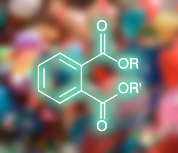
California's Ban On Phthalates May Spread To Other States
Yesterday’s legal action in California against Apple over its use of phthalates may be the opening shot in a nation-wide battle between consumer advocates, health agencies, state and federal entities, and manufacturers of everything from teething rings to consumer electronics to sex toys. Although the ban (which will go into effect Jan. 1, 2009) is limited to California, “lawmakers in Texas, Illinois, Florida, Massachusetts, Maryland, Washington, Maine, Connecticut and New York are expected to introduce similar legislation in the coming months, according to environmental and breast cancer groups that sponsored the California measure.”
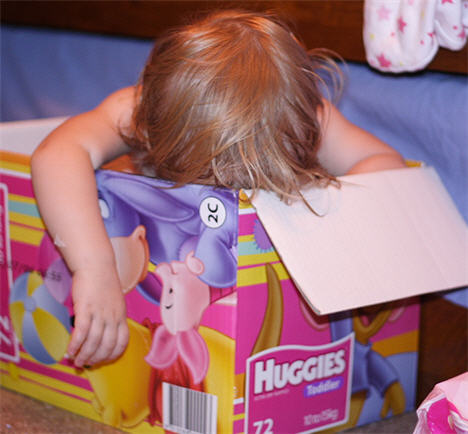
Huggies Diapers, Scott Toilet Paper, Will Soon Be More Expensive
Consumer goods manufacturer Kimberly-Clark announced today that it was raising prices on a variety of products from Huggies diapers to Scott and Cottonelle bathroom tissue.
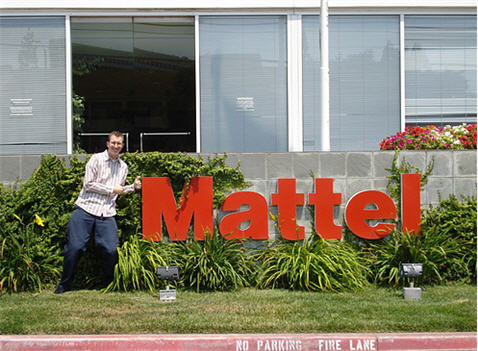
China Says Only 15% Of Mattel Recalls Are Its Responsibility
Eighty-five percent of the roughly 20 mln toys that Mattel recalled were due to design faults, Li, the director of the General Administration of Quality Supervision, Inspection and Quarantine, told reporters.
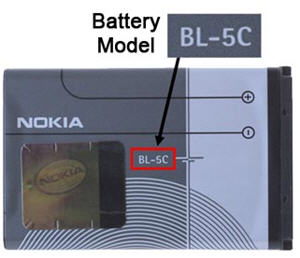
Nokia Recalls 46 Million Defective Batteries
Nokia has recalled 46 million defective Chinese-made batteries according to the New York Times. The batteries can overheat and dislodge during charging. Nokia promises to replace the batteries at no cost to the consumer.
Mattel Thought They Could Outsmart The Chinese Poison Train
Two weeks before announcing the recall of nearly 1 million toys tainted with toxic lead paint, Mattel was featured in the New York Times as a role model, the “gold standard” for companies manufacturing goods in China. The Chinese Poison Train’s ability to sneak past Mattel’s fortified defenses highlights the tremendous difficulties faced by well-meaning American manufacturers trying to police their supply chains. Mattel spared no expense to ensure the safety of their products.


